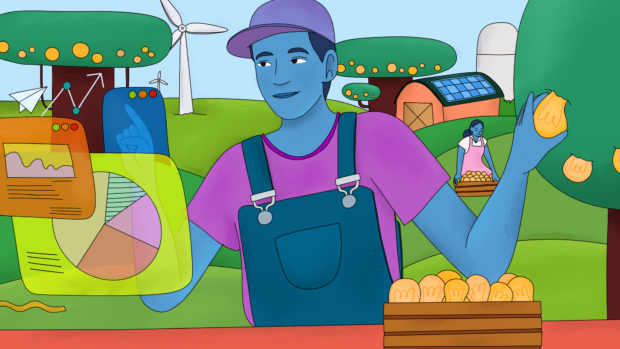In 2024, the northern hemisphere recorded the hottest summer overall, the hottest day, and the hottest ever month of August. That same month – August 2024 – this warming fueled droughts in Italy and intensified typhoons that devastated parts of the Philippines, Taiwan, and China. The following month, new research calculated that warming is costing the global economy billions of dollars: an increase in extreme heat and severe drought costs about 0.2% of a country’s GDP.
These are only the latest stories and statistics that illustrate the growing costs of climate change – data points that have emerged in the short time since we published our second Spotlight on unlocking climate data with open transaction networks.
This third paper in the series continues the work of the Joint Learning Network on Unlocking Data for Climate Action (Climate Data JLN). This multi-disciplinary network identified multiple promising models to explore in the context of unlocking data for climate action. This Spotlight paper examines the third of these models: data spaces. Through examination of data spaces in action, the paper analyzes the key elements that render them more or less applicable to specific climate-related data sets. Data spaces are relatively new and mostly conceptual, with only a handful of implementations in process and concentrated in a few geographic areas. While this model requires extensive up-front work to agree upon governance and technical standards, the result is an approach that overcomes trust and financing issues by maintaining data sovereignty and creating a marketplace for data exchange.
Research series
Following our engagement at COP28, the Digital Impact Alliance convened a group of organizations to form the Joint Learning Network on Unlocking Data for Climate Action (Climate Data JLN.) The Climate Data JLN brings together experts in climate action, data exchange, and digital public infrastructure to understand new models for data governance that can overcome challenges related to trusted data sharing.
As part of this year-long effort, the Climate Data JLN has collaborated on research and published the first research spotlight on the data trust model, and a second spotlight on open transaction networks.
Much of this work was inspired by the multistakeholder Green Digital Action initiative convened by the International Telecommunications Union with participation from 40+ organizations. The Climate Data JLN will deliver recommendations in time for COP29 in Baku.



